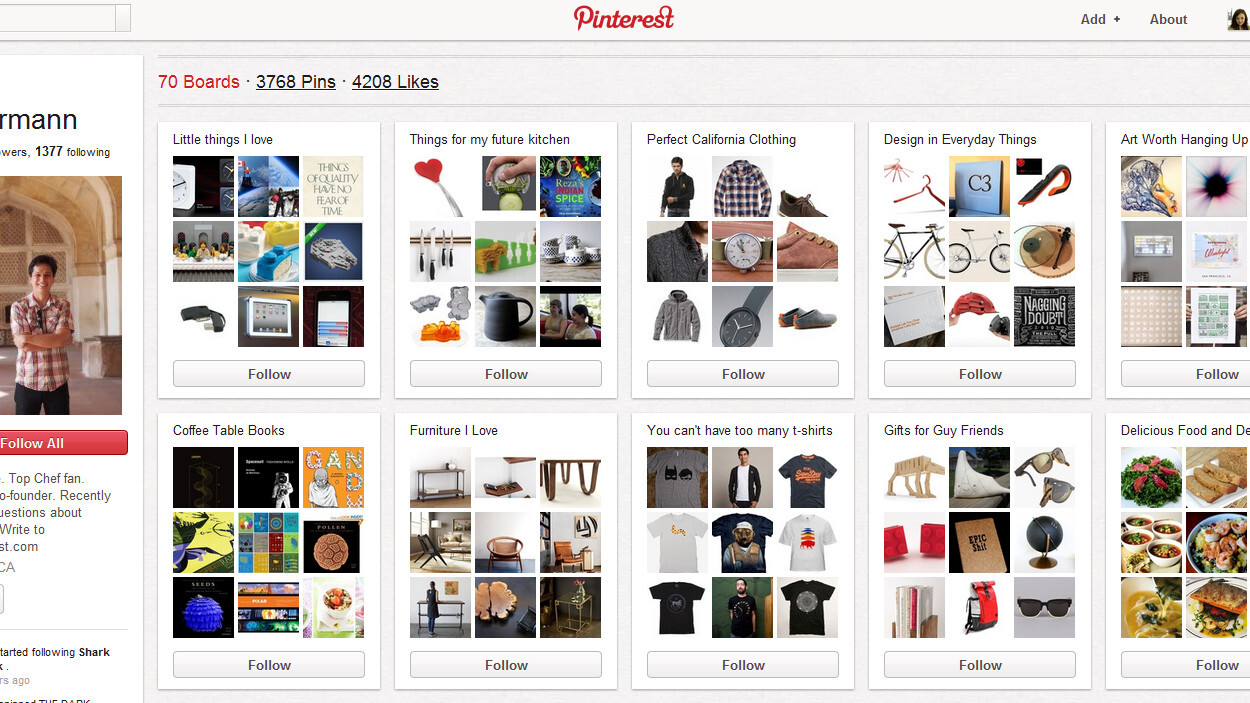
Pinterest and its early investor, Brian Cohen, have been sued in the United States District Court for the Southern District of New York over allegations that they stole the ideas and technology from Theodore Schroeder, an lawyer and entrepreneur who had a working relationship with Cohen. The company is facing six counts in the lawsuit and the plaintiff is seeking an award in excess of $75,000, “constructive trust over earnings derived from Pinterest”, and more.
The counts
The lawsuit alleges the following causes of action that have harmed Schroeder:
- Unjust Enrichment: Basically Schroeder has been unrewarded for the benefits he alleges he created but Pinterest was successful in executing
- Misappropriation: Schroeder says that the technology he developed was shared with Pinterest without his consent even after he took steps to maintain the secrecy of all related technology and business management information
- Misappropriation of Skills and Expenditures: While Pinterest’s early investor Brian Cohen was the Chairman and CEO of Schroeder’s company, he allegedly “misappropriated technology and information that was the result of Schroeder’s labor, skill, and expenditures” and was done so in bad faith
- Promissory Estoppel: Schroeder said that Cohen had promised he wouldn’t take his ideas and use it for his own benefit and alleges that that promise was broken
- Breach of Fiduciary Duty: Because he was the Chairman and CEO, Cohen allegedly did not act in the best interest of Schroeder’s company and betrayed his trust
- Aiding and Abetteing Breach of Fiduciary Duty: Schroeder claims that Pinterest knew what Cohen was doing and helped “participate in the breach and provided substantiated assistance to Cohen by basing the venture on ideas and concepts that were misappropriated and constituted confidential and proprietary information, and by failing to give credit to the originators of these ideas.”
What is being alleged
A resident of New Jersey, Schroeder alleges that in 2005, while he was attending Columbia Law School, he and Brandon Stroy, a classmate, decided to partner to create a social network bulletin board where users could come together to share their locations with their friends.
Yes, stop me if you’ve heard this story before.
This idea was pitched to a third party to obtain financing, but Schroeder felt that he had the technical expertise and the idea so he decided to try and boostrap the project.
According to the lawsuit, this project was known as RendezVoo (RDV) and a year later, the first version of the site was released to the public. Schroeder alleges that in the second version of RendezVoo, he proposed that “boards” be created to allow user to post their interests. The lawsuit claims:
When RDV Version 2 was launched, standard web technologies provided only inefficient ways to browser large amounts of data. Infinite scrolling allows users to scroll through content on a seemingly single, long page rather than open separate pages to retrieve additional content. At the time, the concept of infinite scrolling was in its infancy.
Schroeder states that the “boards” and the infinite scrolling concept found its way to Pinterest without his knowledge and that this helped in the creation of Pinterest.
Claims against Cohen
In January 2007, Schroeder, Stroy, and another classmate William Bocra met Cohen to talk about RendezVoo. The suit alleges that Cohen was provided with the business plan, the site’s concepts, and business model. At the time, RendezVoo had more than 5,000 users.
It was during this time period when the creation of RendezVoo’s “Launchbed” platform took off, and Schroeder claims that Cohen recognized that Launchbed “provides the announcee with a branded, centralized web launch presence and a sophisticated platform of customer-centric Web 2.0 community tools to make the launch more effective.” He goes on to supposedly say, “It’s the first interactive-user driven launch environment for everything ‘new’ that provides for immediate customer inquiry and feedback.”
Later that year, Cohen decides to join with Schroeder and the team as a partner and contribute $20,000 to the project, which was never paid, according to the suit.
After a while, the relationship becomes quite rocky between the founding partners with Schroeder saying that in September 2007, Cohen sought to have greater power in the company and oust Stroy from the group over the “perceived lack of involvement in the project”. He also wanted a greater share of the company. Schroeder alleges that with all the tension, it effectively “deadlocked” his project.
Pinterest and the “Faustian Deal”
Once the project was deadlocked, the lawsuit alleges Cohen took the ideas from Schroeder and used it for his own personal gain, and that involved investing in Pinterest. In a Mashable article, Cohen had said that he came across Pinterest’s founders “at a business plan competition where Angel investors ‘forage for new opportunities’.”
Cohen had made claims that he was a mentor to Ben Silbermann and Evan Sharp, the founders, and how he “marveled at how Silbermann listened to advice from investors, customers and partners” and that “they were incredibly open for input…”
In the end, Schroeder alleges that Cohen didn’t reveal he took his ideas and then worked with Silbermann to develop Pinterest. The suit contents that Cohen “lacked the technical skills to write code or otherwise develop website applications” and this made it suspect.
Below is Schroeder’s lawsuit in full for your review.
Get the TNW newsletter
Get the most important tech news in your inbox each week.




